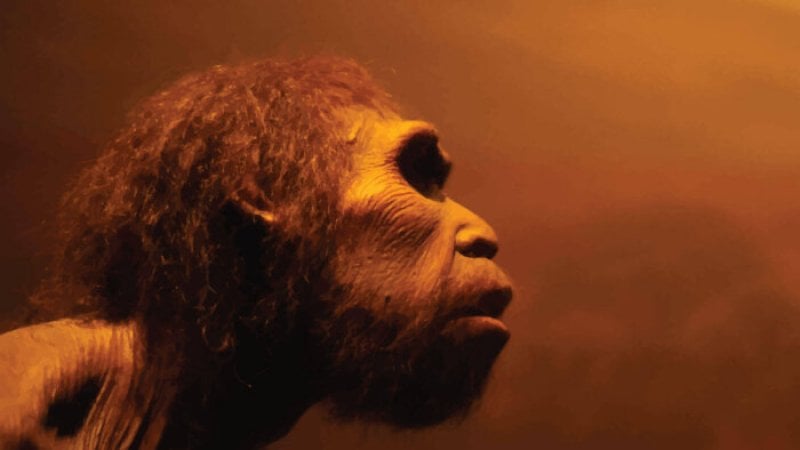More than 500,000 years ago, the ancestors of Neanderthals and modern humans were migrating around the world when a pivotal genetic mutation caused some of their brains to improve suddenly. This mutation, researchers report in Science, drastically increased the number of brain cells in the hominins that preceded modern humans, probably giving them a cognitive advantage over their Neanderthal cousins.
To neuroscientists Anneline Pinson and Wieland Huttner at the Max Planck Institute of Molecular Cell Biology and Genetics in Dresden, Germany, one gene stood out. TKTL1 encodes a protein that is made when a fetus’s brain is first developing. A mutation in the human version changed one amino acid, resulting in a protein that is different from those found in hominin ancestors, Neanderthals and non-human primates.
…
Fossil records suggest that human and Neanderthal brains were roughly the same size, meaning that the neocortices of modern humans are either denser or take up a larger portion of the brain. Huttner and Pinson were surprised that such a small genetic change could affect neocortical development so drastically. “It was a coincidental mutation that had enormous consequences,” Huttner says.
…
Pinson says that the Neanderthal version of TKTL1 is rare among humans today, but adds that it’s unknown whether the mutation causes any disease or cognitive differences.































